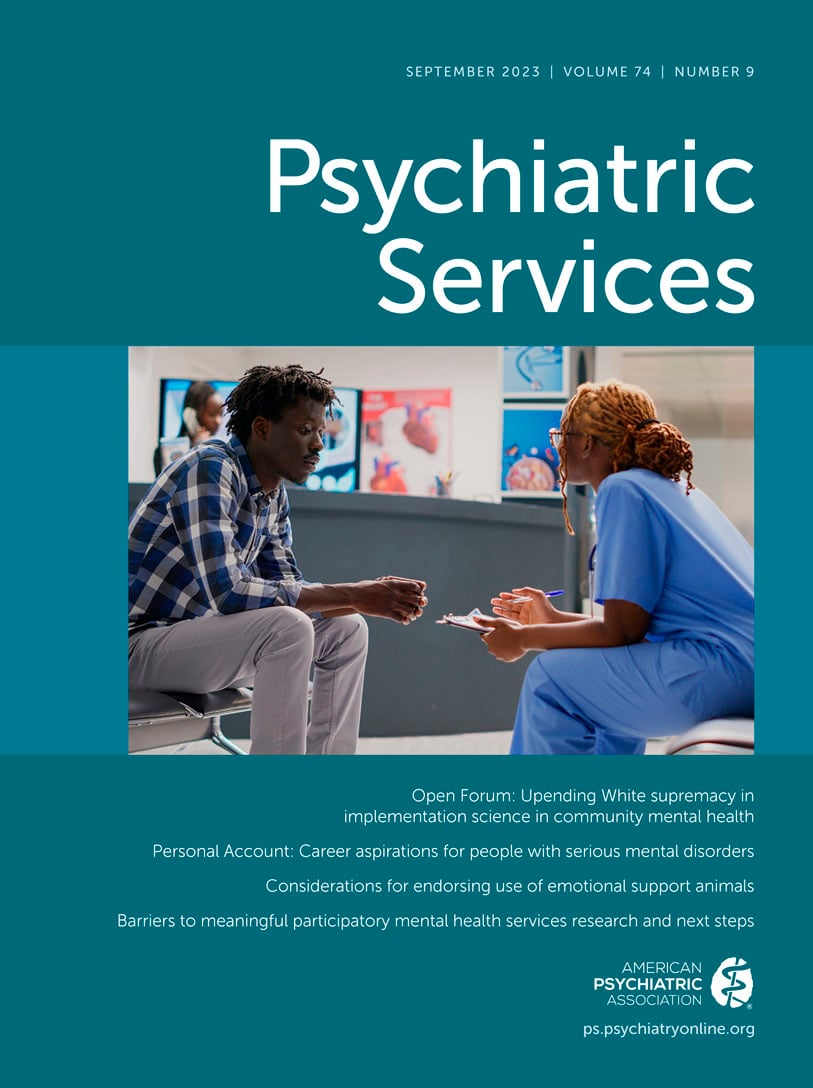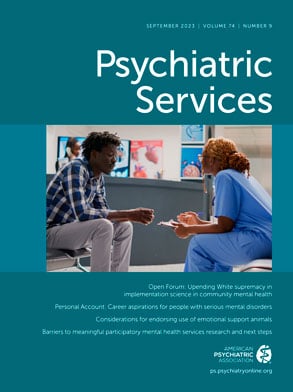“What is your career aspiration?” my project director recently asked me.
I was tempted to once again give the professional answer that I usually offer—to publish more academic articles, take leadership roles in projects, and be promoted to a more senior position. However, what I really wanted to say was that I hoped I would never lose my ability to work. Such a comment would sound absurd, however, because I have a stable job, my performance evaluations have been excellent, and I recently received a promotion.
However, career prospects do not appear as bright when bipolar disorder is part of the package. For me, as someone living with this condition, nothing can be taken for granted. I work hard to manage my symptoms and have not had an acute episode for a decade, which has allowed me to finish a Ph.D. focused on behavioral health. But my daily ups and downs remind me that the good health I have now is fragile.
I am an advocate for people with serious mental illness (i.e., those who have schizophrenia, psychosis, bipolar disorder, or other psychiatric conditions with psychotic features), so I do not deliberately conceal my diagnosis. However, in the professional world, when talking to my supervisors, I pretend that I am just an average employee who wants to perform her duty well. I want people to see me as “normal,” as “one of us.”
Worrying about being seen as “other” has become part of my life. Bipolar disorder is both a stigmatized and a romanticized illness. It is a mysterious illness that modern science still knows so little about. The manic phase of bipolar disorder is associated with violence and insanity, as well as with passion and artistic creativity. Thus, people with this condition are perceived as fundamentally and irrevocably different from “normal” people. Because of this otherness, I worry that everything I do might be mistaken for symptoms of mental illness. Laughing to tears could be seen as hypomania. Complaining about a bad day could be interpreted as depression. Arguing with others may be taken as a sign of relapse. Being passionate about an issue could indicate pathological obsession. Even as I write this Personal Account, I am carefully choosing examples to avoid being perceived as an unpredictable, incompetent, or pitiable person.
When talking about mental illnesses, we cannot escape the topic of stigma. Stigma contributes to the suffering of persons with mental illness as much as the illnesses themselves. Stigma is much more than the negative perception and hostility that society holds toward the stigmatized person. Stigma changes one’s ways of viewing the world and oneself. Because of stigma, I have become more hypervigilant and less trusting. These are not symptoms of bipolar disorder—they are my responses to the outright discrimination I have endured. Despite past negative experiences, I force myself to be positive and optimistic, as if stigma and discrimination have had no effect on me.
I have considered myself an ambitious person since I was a child. In my early 20s, my career aspirations motivated me to travel from China to the United States to study. Those aspirations now belong to the time before mental illness interrupted my life. My current aspirations are only a shadow of those of my past. On the one hand, I tell myself that my health is more important than anything, and I should not push myself too hard. On the other hand, I try to live up to the expectations of the person I no longer am, pushing myself toward self-loathing. I am frustrated by my lack of concentration and low energy. At the same time, I remind myself how fortunate I am compared with people who also have bipolar disorder and whose lives have been circumscribed by the revolving doors of hospitalizations. I am torn between the reality of what is and the thought of what might have been.
A promising career is elusive for me. In the world of advocacy for people with serious mental illness, we talk about employment, jobs, and skills, as well as friendly workplaces and job accommodations. As far as I remember, never once have we talked about careers, let alone aspirations. A career requires some level of continuity, yet serious mental illness is an unpredictable disruptor. The word “aspiration” feels almost incompatible with living with a serious mental disorder. To validate my feelings, I Googled the phrase “career of persons with mental illness.” Every item at the top of the results page focused on the type of job or work a person with mental illness could do. Soon the items became things like “8 best careers to help people with mental illness”—recruitment ads for psychology departments.
“Career aspirations are for able-bodied people,” I thought. “What I need is a stable job, that is all.” I was surprised by these thoughts. They sounded so wrong. After carefully examining my conclusion, however, I found that I actually believed it. Clinically, the desired outcome for persons with serious mental illness is remission and a high level of social functioning. Holding a full-time, mainstream, competitive job is like the Holy Grail. I do not know how to move beyond these expectations. My advocacy experience and education do not provide any answers.
Serious mental illnesses affect a person’s self-esteem and self-efficacy. I often have difficulty seeing myself in a positive light. Frequently, I have a strong feeling that I am unable to perform certain tasks, even though I know that I have done similar ones not long ago. It is challenging to fight against these feelings of inadequacy. Except when a task is something I am absolutely good at accomplishing, I usually feel that I am not doing it well, that I have never improved, and that I will never improve. I know these thoughts are illogical, but their power sometimes overwhelms me. I have had to manage this negativity by using cognitive-behavioral techniques to examine my thoughts. Building self-confidence has been difficult. I wonder how many opportunities I have missed because of these pervasive feelings of incompetency.
Everyone needs a mentor providing understanding and helping one to navigate one’s career. Pretending to be “normal” makes that impossible for me. Only if I disclose my condition to my supervisors could we have an honest conversation about my career—a discussion about what I am good at and what I am not good at. If I disclosed my illness, I could tell people that the bipolar brain is wired a little differently from others. I have some strengths and weaknesses that could be a little unusual. If I disclosed, I could stop pretending that I am “normal” and could honestly share how confused I am about my career and how I would appreciate advice on moving forward.
The rampant stigma associated with serious mental illness, however, makes disclosing a risky action. I worry that my supervisors and colleagues will have low expectations of me after I disclose. I do not want easier tasks. Rather, I need practical advice about how to be more effective in my work, and I need encouragement from others to balance the pervasive thoughts of “I can’t do it.”
Recovery from mental illness should not end with getting and keeping a job. All workers deserve to have and pursue career aspirations—people with serious mental disorders included. For their aspirations to become reality, however, corporate culture regarding mental illness needs to change.
What might a new corporate culture look like? Employers could provide time and space for support groups (usually called employee resource groups) that are open to all employees, regardless of disability status. It could be helpful for these groups to provide evidence-based advice to employees on how to disclose their conditions, if they want to disclose. There could be training to help managers and supervisors understand the lived experience of persons with disabilities, including serious mental disorders. Many managers and colleagues want to be supportive, but they don’t know how to have the conversation. Understanding and empathy are powerful tools to reduce stigma and to challenge the perception that people with serious mental illnesses are inherently different from “normal” people. Such culture would allow people to show vulnerability and weaknesses, making it easier to disclose a mental illness or other disability.
Changing corporate culture will be a slow process, but the cumulative efforts of individuals will make a difference on a systemic level. Perhaps the impact will be imperceptible at first, but eventually changes will be seen. I wait for that day in the hope that all of us will have the opportunity to achieve our highest potential.
Acknowledgments
The author expresses her gratitude to Dr. Marjorie Baldwin for her invaluable advice and encouragement. Her work on serious mental illness has been a source of great inspiration and motivation.

